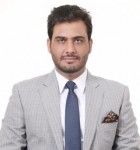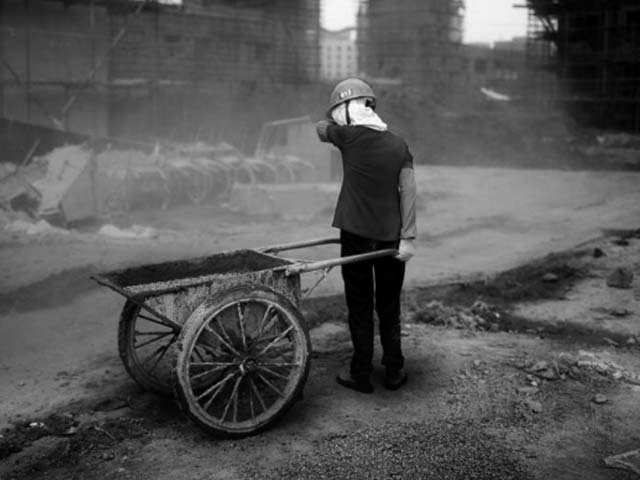
Aitchison may be ‘the best school in Pakistan’, but our education system is dying a slow death
Our education system is focused on producing a ruling elite and a disorganised ruled majority, a perfect balancing act
Editor’s note:
When I first read Mr Haider’s email, my first reaction was to decline the post. The blog in question, for which he wrote this rebuttal reproduced below, had been published two years ago. As our readers and bloggers may be aware, we don’t normally take rebuttals to pieces after such long periods of time. But I gave it a read none-the-less, and before I finished, I had already asked my colleagues to write back to the author thanking him for sending us such an inspirational piece.
We hope our readers enjoy it as much as we did.
All the best,
Erum Shaikh (@shaikherum)
Blogs Desk Head
The Express Tribune
blogs.tribune.com.pk
----------------------------------------------------------------------------------------------------------------------------------------------------------------------
Dear Syed Ali Hassan,
Thank you for your blog (7 reasons why Aitchison College is the best school in Pakistan). It is inspiring to see that you have written such a well-articulated piece at such a tender age.
Frankly, my school fellows and I, who were mildly acquainted with the ABCs in sixth grade, were still struggling with present and past tense at your age during the early 90s.
To start off, I must confess I do not have a readily available photograph of my school. It seems no one ever uploaded any on Facebook. But that makes sense, as we could hardly afford a camera back then. However, I have a very clear memory of what my school, MC Middle School for Boys Gallah Mandi Pakpattan, looked like; it was like any other government school in Punjab or, for that matter, Pakistan. There are no great names that I may ascribe to my school; there were a few of us who were able to survive through completing our college or university education though.
Some of those survivors are now mid-career professionals in the army, civil services, and other professions like medicine and engineering – jobs my generation dreamt of.
But it’s only half true when I say there are no great names to be ascribed to my school.
There’s actually an entire list of people who are our heroes, boasting of statures far bigger than those of the renowned lawyers, cricketers, statesmen, politicians, and celebrities you named. They were our teachers. Ikramul Haque Sahib is the first name on this list. He was our fifth grade teacher. He lived in a small house throughout his life, earned just enough to make ends meet, and came to school with a big smile every morning. Ours was a school competing with every other school for ‘the best in the district’ in terms of achieving maximum scholarships in the fifth grade board exam.
An internal school examination was conducted to select the students who would appear for the board exam. I was one of the few selected ones. Ikram Sahib was put in-charge of this ‘elite’ group of selected students. With two months at hand, Ikram Sahib left no stone unturned to equip us for the board exam. He was very innovative in his approach. For instance, when he realised that we were exhausted and losing interest in our studies, he would take us out of the class room, into the assembly ground and engage us in small games such as ‘sit-stand, sit-stand’.
Refreshed, we would rush back to our studies with renewed enthusiasm. During the last four weeks of preparations, I remember he had to conduct extra classes which held us back at school for longer hours. Since school ended at 2pm, we would go home and have lunch, but extra classes didn’t allow us to go home, have lunch and return to school, nor did we have the luxury of bringing lunch boxes with us. So, his wife would cook food for us and send it to our school. It was not a matter of surprise when all the selected 25 students of MC Middle School for Boys Gallah Mandi Pakpattan not only passed the board exam, but also secured the top ten positions.
Muhammad Sharif Sahib was my sixth grade teacher. For us, sixth grade was the most crucial and testing stage of learning. The horror of learning and writing our alphabets, memorising tricky or long spellings such as ‘yacht’ and ‘February’ frightened everyone. Sharif Sahib was a young teacher who had just completed his Bachelor of Education (B.Ed.). He was kind, warm, considerate and brilliant. It so happened that students with parents who were financially well off, started pursuing him for home tuitions, a rising business those days. But Sharif Sahib firmly refused. I witnessed parents offering him a fee higher than the going ‘market rate’, but he refused and told the parents that the children would not need private coaching.
In the last quarter of the year, he offered extra classes to weak students at the school and that even without a fee. Our school did not have a playground of its own. Sharif Sahib organised our first cricket and football teams. He would take us to a public playground once every week for practice. A few of us, including myself, went on to play for our university teams.
It is poignantly interesting that Sharif Sahib was the eldest son of a fruit vendor. The man, who could not be persuaded to provide private coaching for a fee, would send his father home for rest after school hours and sell fruit himself. Our best teacher, Sharif Sahib, breathed his last at the age of 40. His widow works as a peon at a girls’ school, a job given to her on compassionate grounds.
Sorry for the digression. But are we missing something here?
I received my college and university education at FC College Lahore, one of the finest. And I understand perfectly Syed Ali Hassan’s pride for his school, Aitchison College.
Even I, after having completed my education, taught at Aitchison College. So yes, I can vouch that it is amongst one of the best schools we have in the country. But are we missing something? Yes. Something is definitely off in the state of Pakistan. The system in our country, if we ever had one to begin with, has collapsed. Its heroes, the Ikramul Haques and the Muhammad Sharifs, are dying a slow, anonymous death.
It caters for, as Vilfredo Pareto would put it, 20% of the population at the cost of the 80%. Its bipolar education system is focused on producing the ‘perfect gentlemen’ and ‘the ruling elite’ on one hand and the ‘brilliant-dying-anonymous-death’ and the ‘disorganised-ruled-majority’ on the other hand – a perfect balancing act.
The Ikramul Haques and the Muhammad Sharifs of our government schools, I believe, will keep being themselves. It is in them. But is the state of Pakistan waiting for their extinction before it acts and allows every Pakistani a memory as sweet as that of the alumni of Aitchison College or MC Middle School for Boys Gallah Mandi Pakpattan?




COMMENTS (11)
Comments are moderated and generally will be posted if they are on-topic and not abusive.
For more information, please see our Comments FAQ